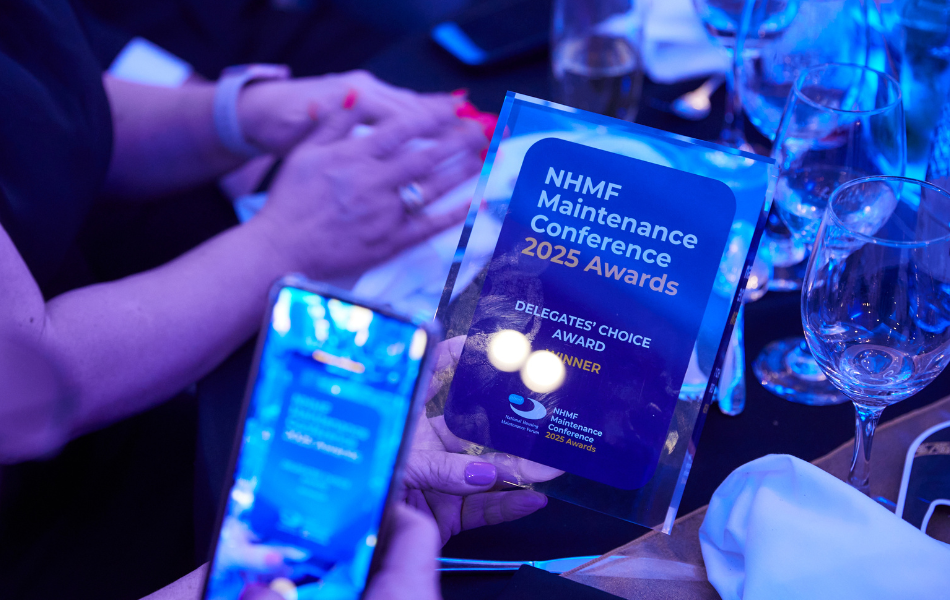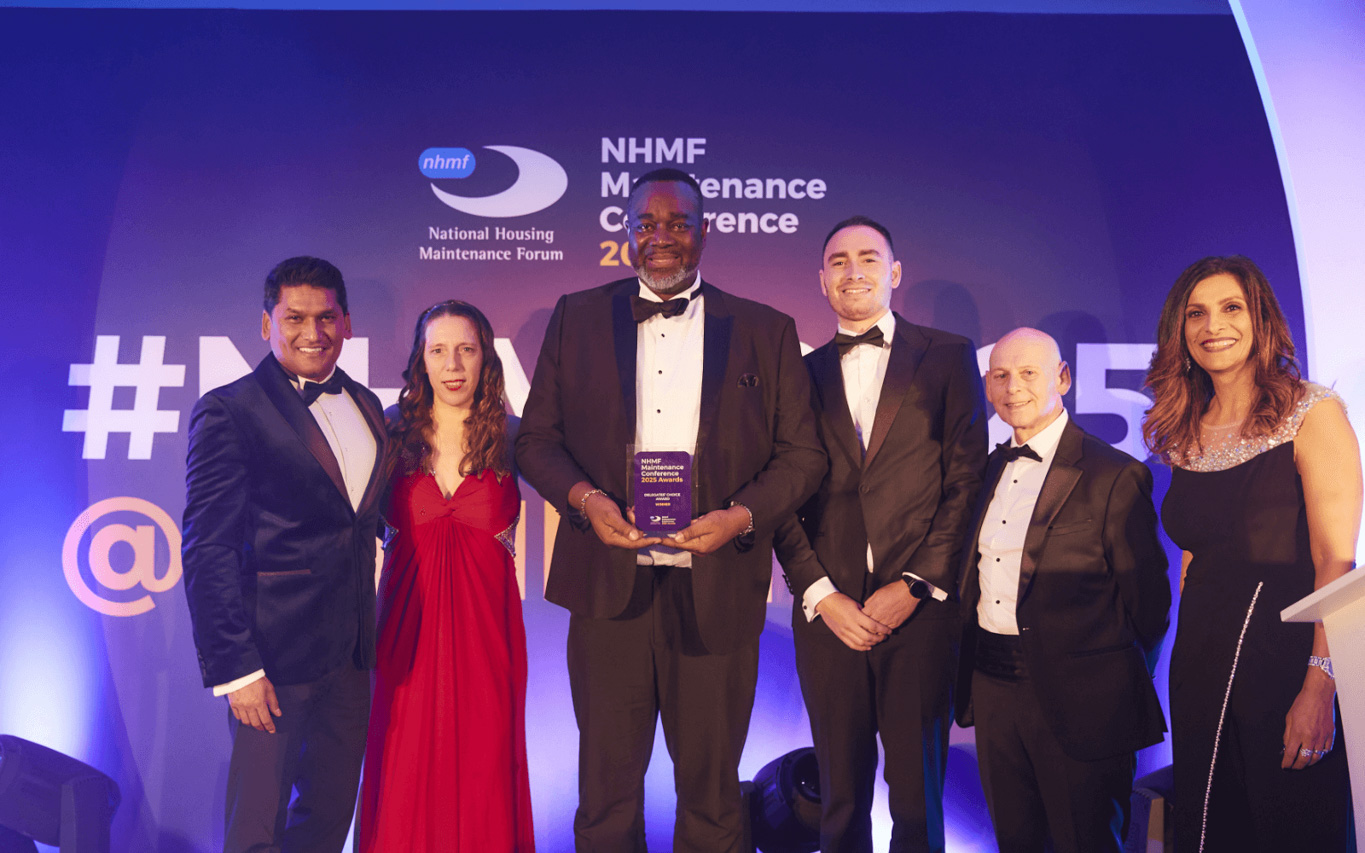NHMF Awards 2025: Best Net Zero Carbon Initiative – shortlist
What can the sector learn?

Shortlisted projects
Leeds City Council & Equans carried out a £25m project, using £9.6m from the Social Housing Decarbonisation Fund, to transform seven blocks of high-rise flats by installing new external wall insulation, new roofs, improved airtightness, and ventilation systems, while carrying out structural repairs.
Wolverhampton Homes & Wates transformed 321 of Wolverhampton’s hardest-to-treat system-built homes, including BISF, Orlit, Dennis-Wild, Cornish, and solid wall homes. The aim was to develop scalable and transferable solutions for these challenging archetypes. Key improvements included external wall insulation, roof replacements, loft insulation, enhanced ventilation and energy-efficient windows and doors. A deep retrofit pilot was undertaken on 9 properties helping inform Wolverhampton’s long-term strategy. The pilot introduced low-carbon heating solutions, such as solar PV, air source heat pumps and battery storage to drastically reduce residents’ energy bills.
What is innovative about and what was achieved with these projects?
Leeds City Council & Equans – While tower blocks are often overlooked when developing retrofit schemes, this project carried out retrofit while undertaking structural work. The teams collaborated to develop an efficient programme of work, ensuring residents were kept safe and informed throughout. A new community kitchen was installed at one block, providing a warm, welcoming space for residents to gather and to leave a legacy for the neighbourhood.
Annual energy costs have been halved for each flat – with residents saving up to £800/yr, while CO2 emissions have been cut by approximately a third. The likelihood of damp and mould has been reduced due to the improved ventilation, which should improve residents’ health. As well as improving energy efficiency, the newly rendered exterior walls have revitalised and modernise the appearance of the flats and should uplift their communities. The team has also carried out a series of workshops in the area to boost employability and skills of local people and to inspire future careers in construction.
Wolverhampton Homes & Wates tackled Wolverhampton’s hardest-to-treat system-built homes, by developing scalable and transferable solutions for its challenging archetypes. It used a ‘worst-first’ approach that aligned with neighbourhood regeneration and planned maintenance, to upgrade properties in phases based on location and construction type. A deep retrofit pilot was undertaken on 9 properties helping inform Wolverhampton’s long-term strategy. The pilot introduced low-carbon heating solutions, such as solar PV, air source heat pumps and battery storage to drastically reduce residents’ energy bills. Innovations on this project include Constructive Thinking’s survey methodology, culminating in a BIM model which informs the retrofit and provides accurate building data. There was continual improvement of construction techniques, which reduced build time from 15 to 10 weeks on BISF properties, in spite of complex tasks like steel frame remediation and re-roofing. Other innovation included Wetherby EWI and AICO IoT monitoring systems, which provided real-time data on damp and temperature levels. Combined with the BIM modelling, this data-driven approach ensures that the upgrades are functioning as intended and enables proactive planned maintenance to futureproof the energy performance of homes.
Key improvements included external wall insulation, roof replacements, loft insulation, enhanced ventilation and energy-efficient windows and doors. These interventions are vital to prevent system-built homes from being neglected due to high retrofit cost and complexity. They improved living conditions for residents in poorly insulated and outdated homes, which often suffered pest infestations.
What are the measurable benefits to the client, the contractor, the resident, and the neighbourhood?
Leeds City Council & Equans The achievements form an important part of the council’s wider £100m programme of work to reduce the city’s buildings’ carbon footprint and to tackle fuel poverty. The PAS2035 requirement to improve ventilation following the installation of insulation also has allowed the council to tackle the growing issue of mould and damp which has become more prominent in recent years with residents unable to heat their homes adequately as a result of increased energy costs. Residents’ health should be improved.
Equans committed to investing in the local economy by using local labour and suppliers as well as employing two trainee operatives from the area to boost employment opportunities. Equans also carried out 20 careers, skills, and employability workshops, including mock interviews, and events to help inspire people to explore careers in construction. They also ran a careers event at HMP Leeds to help those leaving prison learn about apprenticeships and construction roles. They donated to a local charity which teaches unemployed people how to fix bikes – giving skills to help them build a career and a positive social circle. Equans staff also volunteered to decorate a care leaver’s flat to help it feel more like a home, as part of its commitment to the Care Leaver Covenant. Flats which had pre-work ratings as low as G, now have an EPC of a C, with some flats achieving a B rating. Average space heating was reduced from 251.96 kwh/m2 to 186.88 kwh/m2 after the insulation works (65 kwh/m2 or 26% better). In one block, CO2 emissions per flat will be reduced by 883 kg CO2 per year, a total of 227 tonnes across one group of three blocks, an average carbon reduction of 32%.
Wolverhampton Homes & Wates This project is a significant step toward achieving the Council’s ambitious Net Zero carbon target by 2028 and supporting the council’s goal of carbon neutrality by 2041. By prioritising the hardest-to-decarbonise properties, it created a retrofit strategy for system-built properties that can be replicated in over 1.1million system-built homes in the UK. It will also inform best practice within the West Midlands Combined Authority, following the region’s trailblazer devolution deal.
The project will upgrade all properties from EPC D to at least EPC C on by March 2025. Wates and the wider supply chain have developed specialised skills in retrofitting these system-built archetypes. By refining construction techniques, build time was reduced from 15 to 10 weeks for BISF properties, achieving faster completion, reduced tenant disruption and improving the service provided to residents as the project progressed. This experience with steel frame remediation, complex insulation, and re-roofing systems, has strengthened the contractor’s capacity to deliver similar projects. It can also support scaling of retrofit across the sector by sharing valuable knowledge with others who have system-built properties.
For residents, the project has led to a substantial increase in comfort, with warmer homes and reduced energy bills. Fabric improvements reduced homes heat demand by at least 50% per year, saving residents between £400 and £600 on their energy bills annually, while properties equipped with renewable technologies, like solar PV and ASHP, see savings exceeding £1,000 per year. The new ventilation systems mitigate damp and mould, with vermin found in some properties being removed, creating healthier living environments. IoT monitoring further enhances comfort, sending real-time data on the homes’ condition to both residents and Wolverhampton Homes, allowing preventive action to be taken as required. Resident engagement has been crucial to the project’s success, enabling a quality service to be delivered to residents. Individual pre-start meetings are held with all residents at their homes where the full scope of works and benefits are explained with any questions and concerns being addressed. Feedback from residents has been positive with comments reflecting the quality of work and their appreciation of being informed at each stage of the works. The area-based approach has transformed neighbourhoods, enhanced aesthetics and contributing to community pride. The project encourages regeneration and development among owner-occupiers in surrounding areas. Additionally, the project has delivered over £2.4m of TOM’s social value by investing in skills and locally employing 83 people, including 5 apprentices. This has helped strengthen local supply chains, building resilience through the development of skills and encouraged green jobs growth regionally.
What are the financial costs and measurable cashable benefits over a defined time period?
Leeds City Council & Equans – As well as measurable energy bill savings, the Council’s investment in upgrading its stock in this way will pay dividends well into the future. It took the opportunity to carry out vital concrete repairs to external facades to prolong their lifespan, avoiding the costs of revisiting the properties later to make retrospective repairs. To mitigate the challenges of working at height, specialist contractors installed mast climber platforms to enable the team to work safely and efficiently. Insulation to each elevation of the 17 storey blocks could be applied over a shorter period of time compared to using scaffolding. Costs saved by shorter work programme. Significant costs were saved by engaging with specialist retrofit framework provider, Efficiency North (OJEU compliant, removing the need for full OJEU procurement, while meeting the council’s contract procedure rules). The council has used this framework for previous projects, which gave them confidence in its compliance and performance. The Project Delivery team negotiated reduced rates for using the framework to achieve better value, helping to lower capital spend on this project.
Wolverhampton Homes & Wates secured £5.1 million in grant funding through SHDF Wave 2.2 to support this £18.5 million project, which began in June 2023 and is set for completion in March 2025. It enables comprehensive retrofits for some of their most challenging properties, with costs reaching £100,000 per home. This demonstrates Wolverhampton’s commitment to long-term energy efficiency and resident well-being. Financial benefits are evident in the improvements in energy efficiency and cost savings. For example, 45 Cornish properties upgraded with fabric measures improved from EPC D to C, with SAP scores rising from 61 to 72 and space heat demand decreasing by approximately 57% to 63 kWh/m2/yr. Similarly, BISF properties saw SAP scores increase from 57 to 70 and space heat demand decrease approximately 53% to 75 kWh/m2/yr through fabric measures alone. The SAP scores further enhanced to 86 for BISF properties when adding low-carbon technologies such as air source heat pumps and solar PV, with carbon emission savings of up to 3641 KgCO2/yr/property. Translated into annual savings for residents: £556/yr from fabric upgrades, increasing to £1,095 annually when low-carbon heating technology is added. Over time, these savings reduce fuel poverty and improve affordability for residents, ensuring lasting value. With the fabric first and deep retrofit approach being taken, the performance of different approaches can be accurately measured using the IoT monitoring. This will help inform Wolverhampton Homes’ future retrofit strategies.
How relevant is this as an example that might be followed by other organisations?
Leeds City Council & Equans – Tower blocks can often be overlooked when it comes to retrofitting existing housing stock. Issues with access, working at height and engaging residents can be off putting. Lessons from this scheme will help educate other landlords and social housing providers in terms of best practice to retrofitting this type of stock. Equans is already using its learning from this project to retrofit other tower blocks in other cities, for example in Birmingham, and is seeing great results in terms of delivery. The collaborative approach between landlord and contractor can be replicated by councils and social housing providers UK-wide. Equans combined its knowledge of energy efficiency solutions with the technical asset management knowledge of the council. The learning has also been applied to other projects they have worked on together over the last decade.
Wolverhampton Homes & Wates – This project has established retrofit solutions, identified process improvements, and developed specialised expertise in handling system-built homes that is applicable to over 1.1million system-built homes in the UK. A significant challenge for BISF homes was assessing the condition of the steel frame and treating any corrosion. This required an intensive and complex construction process involving the removal of the roof and external cladding down to the steel frame. Build time was improved by adopting a phased approach, completing roof works in parallel with ground floor works. As the project progressed, process improvements for the roof works were identified and implemented, reducing build time and minimising roof exposure to the weather. The knowledge and skills developed in this project have established best practice for tackling various system-built archetypes, which can be shared across the sector through workshops, case studies and collaboration to allow other housing providers to adopt similar methods with confidence. The ongoing use of IoT monitoring ensures long-term performance and maintenance, reinforcing the model’s viability for sustained benefit. By facilitating knowledge transfer, this project can pave the way for widespread adoption of best practices for decarbonising system-built archetypes.


